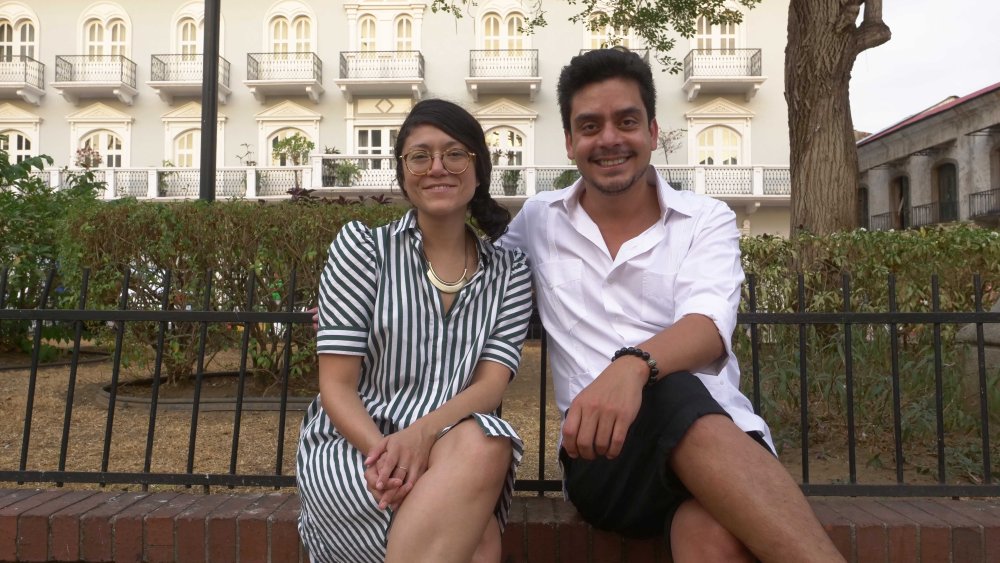Ana Isabel Bustamante’s “La Asfixia” has won IFF Panama’s 1st Fipresci prize for fest film in the “Stories from Central America and the Caribbean” section.
The jury, constituted by Joel del Río, from Cuba, José Teodoro, from Canada, and Daniel Domínguez, from Panama, said that they were impressed by the film’s “exploration of the language of cinema, diversity of perspectives and the reconstruction of Guatemala’s traumatic recent history and the corporality of the desaparecidos.”
Bustamante, cousin of fellow Guatemalan director Jayro Bustamente (“Ixcanal”) spent six years on her personal documentary about the desaparecidos during the civil war.
The pic won the Ibero-American Documentary special jury prize at Guadalajara and has also screened in Havana, Toulouse and Costa Rica.
Bustamante explained that the film is a personal journey of discovery because her own father was abducted while she was still in her mother’s womb and never returned.
The film explores the consequence or such disappearances in the respective families. It has a very intimate tone and she provides the voiceover.
The pic mixes new footage with archive material, some of which was extremely difficult to find – such as the 1978 miner’s march.
Bustamente moved to Madrid in 2011 and says that whenever she returns home she sees how fear and silence are still very much alive.
She is now prepping a fiction film, “Derby” about a girl who starts a roller derby team in Spain.
Guatemala has one of the most fragile film industries in Central America, and one of the region’s lowest market shares for domestic films, though it has nonetheless carved out a distinctive place in the international festival circuit.
The Guatemalan film professionals association, Agacine, chaired by producer Palmela Guinea, is currently lobbying for a film law and creation of a national film institute.
Guatemalan filmmakers have to rely on setting up international co-productions or move to neighboring countries – the case of Julio Hernandez Cordon (“I Promise You Anarchy”) who works primarily in Mexico.
Jayro Bustamente is attending IFF Panama with his most recent film, “Tremors,” about an upper middle-class family who seek gay conversion therapy for their married son.
A Guatemala-France-Luxembourg co-production, “Tremors” is sold by Film Factory Ent. and has been licensed to multiple territories, including France, Belgium, Italy and Turkey.
Bustamente is now prepping his third feature, “La Llorona” (The Weeping Woman) which returns to the jungle setting of “Ixcanal.” The pic stars the female leads from “Ixcanal” – Maria Telón and Maria Mercedes Coroy – and the leads from “Tremors” – Ayla-Elea Hurtad and Sabrina de la Hoz.
Mixing genres, and with a hefty dose of magic realism, the pic focuses on the Civil War period that devastated Guatemala.
“It’s about what wars mean for women and the role of women in wars, which underpin phallocratic systems,” said Bustamente.
The helmer also observed that the three biggest insults used in Guatemalan society are to be indigenous, homosexual or communist, and in his films he has confronted all three issues.
He says that in “Tremors” the male lead, when he reveals that he is homosexual, is suddenly seen as an inferior mortal, closer to being a woman.
For Bustamante, “La Llorona” will be even more polemical because many of the military officials involved in the Civil War are still in power.
Guatemala is an extremely conservative country and Bustamente’s films have generated significant controversy. One of his biggest challenges has been to get his films shown to a wider audience. He achieved this with “Ixcanul” that was shown on public TV in 2017, with the third highest rating of the week. The pic was also shown on Netflix in the U-S. and he thinks that “Tremors” will also play on Netflix.
To counteract the lack of screens in the country, Bustamente has set up the Ixcanul Foundation which is now reconverting a 2-screen cinema – the Cine Capri – in Guatemala City’s historic center and has also negotiated with ten Pentecostal churches to screen arthouse films.
Anaïs Taracena’s “The Silence of the Mole,” screening in the Primera Mirada roughcut sidebar, is a complex documentary anchored in the period of political repression in Guatemala City during the Civil War in the 1970s and 1980s.
The filmmaker began the project with a $4,000 grant from Mexico’s Imcine and then received a further $10,000 from SCAM and CNC in France. She also received a small grant from Guatemala’s Ministry of Culture.
The documentary revolves around a journalist who infiltrated the government during this period, and how silence and fear continues to prevail in the present.
“The film isn’t so much about memories of the past, but how memories haunt the present,” explains the helmer.
Venice Queer Lion winner “José” is directed by Li Cheng, who was born in China and moved to the U.S. 20 years ago, and is co-written by Cheng and George F. Roberson.
Since Venice it has played in 33 festivals in 20 countries and has just had its theatrical release in Poland. The making of the film is an adventure in its own right.
Cheng and Roberson, despairing at the prospect of Trump’s election in 2016, both decided to sell their houses in 2016 in order to make a film in Latin America.
They toured 12 countries before finally choosing Guatemala.
“I’m fascinated by Latin culture,” explains Cheng. “In terms of family life it seems very close to Chinese culture, but when it comes to love and passion, it’s very different. Here you see people hugging and kissing for hours on park benches. That never happens in China.”
“We wanted to focus on the indigenous populations who suffered tremendous violence during the U.S.-sponsored Civil War, including genocide, organized rapes and looting,” says Roberson.
“People were made to feel ashamed of who they are. This film is about human dignity. Stories like this need to be told. We wanted it to be disruptive. We want people to be uncomfortable.”
